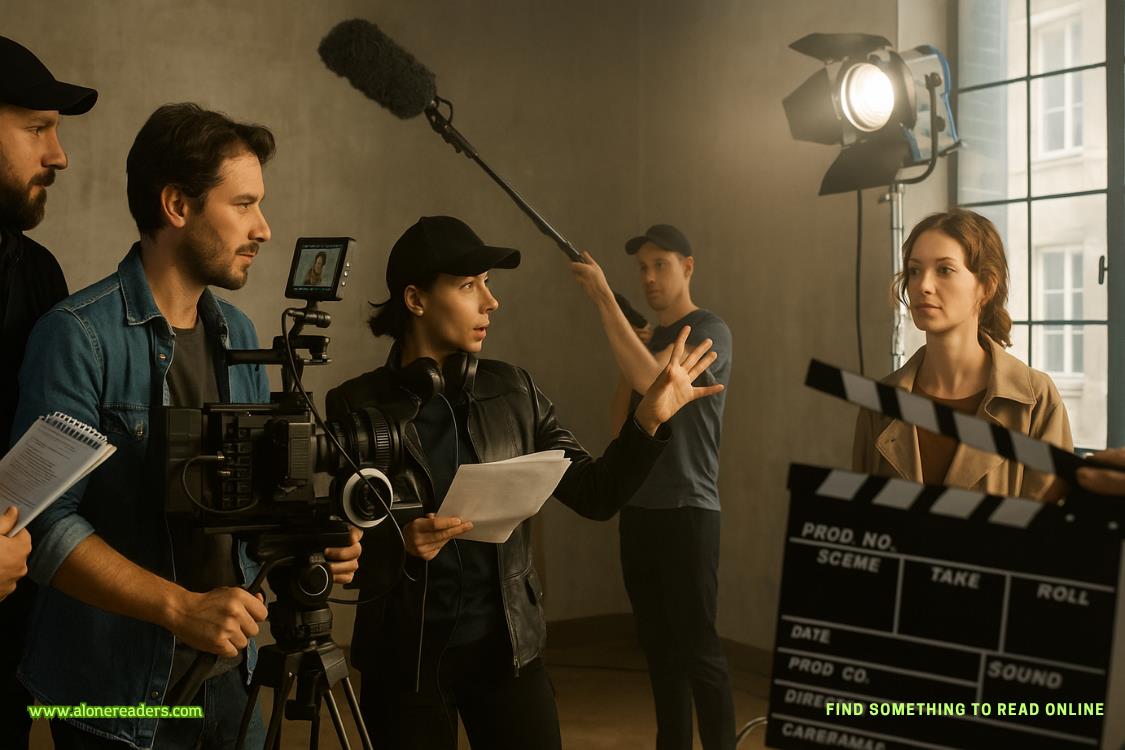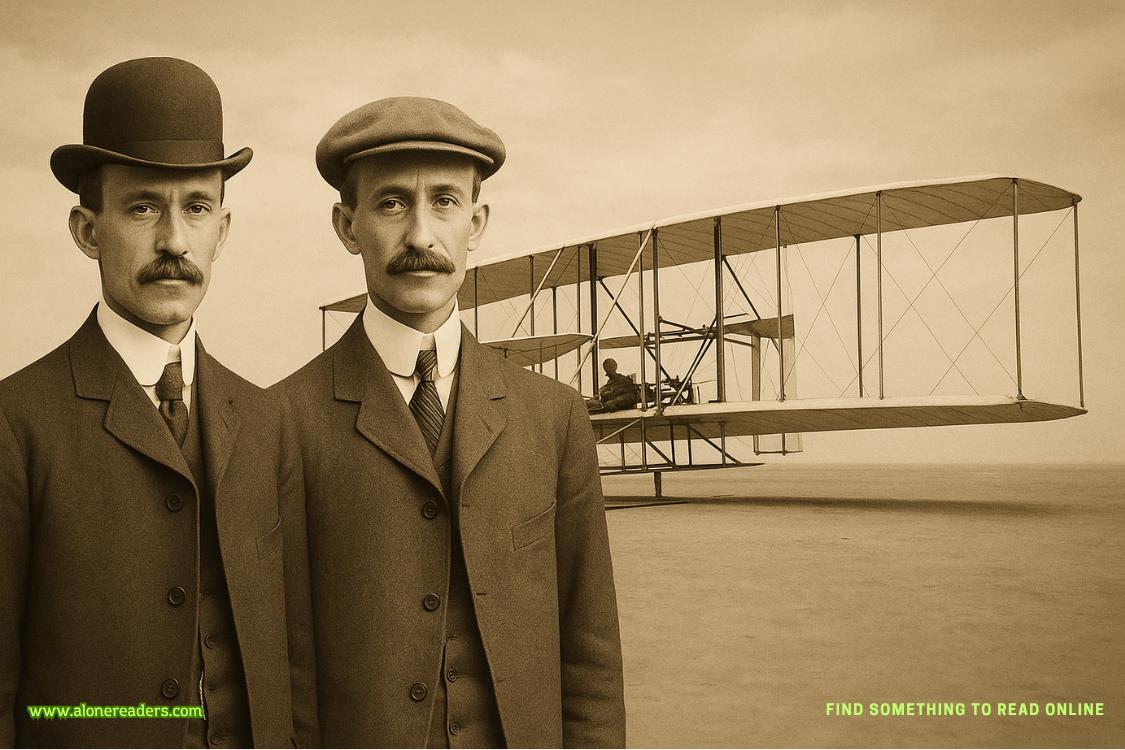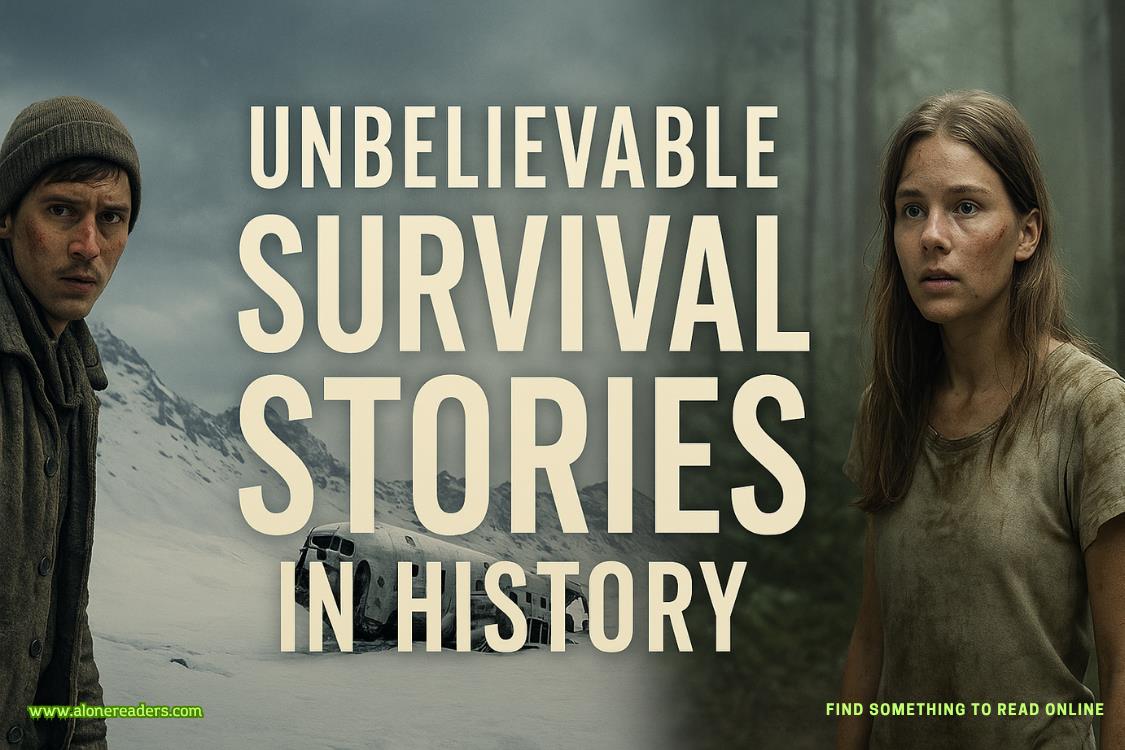Page 16 of No Man's Land
He’d developed the picture last night in his room at the Cohens’. It was cheaper, and safer, to develop his own photographs, and he’d been happy with the way this one had come out. Happier still that his shot of the dead man’s wound had been clear enough to see details, even if it was slightly marred by the same double exposure that afflicted the picture of the dying boy in Flanders. He intended to compare them later, although at the distance he’d taken that shot, the wound wasdifficult to make out. There might be something in it, however. Some connection.
Something he could use to challenge Winchester.
If he ever found the lying sod.
“I’m heading over to the library,” he decided, standing. “They keep a copy ofWho’s Who.”
He’d often wondered about that. How many people needed to referenceWho’s Whoon such a regular basis it was worth keeping a copy in the public library? But perhaps there were plenty of aristocrats running about under assumed names, stealing other people’s personal possessions. He wouldn’t put it past them; historically speaking, theft had always been the favoured pastime of the ruling class.
Overnight, the fog had thickened into a viscous smog, and Josef was coughing by the time he reached the library on Charles Street. He’d promised Mr C that he’d help in the shop that afternoon, so he didn’t have long for his research. Luckily, it didn’t take long to find the Duke of Chester’s brother: Lord Ralph (although Percy had pronounced it ‘Rafe’) Alexander Twisleton Beaumont. Twisleton! The entry told him that the family’s principal residence was Beaumont House in Cheshire, that his lordship had been educated at Harrow and then Cambridge, that he worked as a private secretary in the War Office, and that he was a member of all sorts of toffee-nosed clubs with stupid names like the Savage Club and the Winconian Society.
There was no mention of his military service as a captain in the RAMC, nor any suggestion that he was a trained medical doctor.
Frankly, Josef doubted the man he knew as Captain Winchester was the same man as the chinless aristocrat described inWho’s Who. Winchester had seemed too… human. Nevertheless, Josef wrote down the names and addresses of thevarious clubs as a place to start looking. If nothing else, he’d be able to confirm that the man posing as Beaumont was a fake.
Turning up his coat collar against the cold, he plunged back into the fog and headed home. Well, nothomehome, which was the two overcrowded rooms on Goulston Street he’d shared with his parents and six siblings, but to a small and gloriously private room aboveCohen’s Ironmonger on Leyden Street. Mr and Mrs Cohen had taken him in six years ago, after the general strike in the Port of London. Josef, a union official, had lost his position as a warehouseman when the strike collapsed, and his father had thrown him out; he’d refused to harbour a ‘radical’ under his roof. So, in exchange for room and board, he’d helped the Cohens in their shop, spending his evenings writing furious pieces for any of the union or syndicalist newspapers who’d let him, before finding paid work at theClarion. These days, he still helped in the shop when he could, even though he paid the Cohens a decent rent. They were getting older now and found the heavy work of lugging around pots and pans, coal scuttles, and tin baths difficult. But he suspected the real reason they kept him on was because having a younger man in the shop made them feel safer.
Especially after the war had started.
Normally, Josef would have saved himself tuppence and walked home but given the fog he forked out for the tube instead. Blackfriars Station was quiet in the middle of the day, with scarcely anyone on the platform as he waited for the train. The cold made his nose run, and when he blew it, his handkerchief came away sooty. Bloody smog. He scrubbed at his nose with his coat sleeve and suddenly caught that dreadful stink in the air again. Dropping his arm, he wondered whether it had somehow clung to his coat but, no, he could still smell it. And for reasons he couldn’t explain, the hair rose on the back of his neck. Moving closer to the edge of the platform, he peered down onto thetrack. Movement caught his eye, over to the right toward the tunnel entrance, and he recoiled at the sight of a huge brown rat scurrying beneath the elevated rails.
He watched it snuffling around as the air began to stir with the oncoming rush of a train. It came rattling through the tunnel towards him, pushing the air ahead of it—warm air from the deep tunnels. Thick with the same stench. Gagging, Josef put his hand to his mouth. And froze.
Something watched him from the dark of the tunnel, a gleam of eerie blue eyes.
Josef jolted in horror, oppressed by a sudden, paralysing dread. Then, suddenly, there was nothing but the yellow glare of the train’s lantern as it burst out of the tunnel, brakes hissing and squealing as it slowed and stopped at the station.
Heart pounding, Josef made his way to the third-class carriage and sank shakily onto an empty seat. A young woman dozed at the far end of the compartment, her head on the window and hat askew, and two men in uniform stood at the other end of the carriage in deep conversation. One of them glanced at him, clearly taking in the sight of a young man of fighting age not in uniform, and ostentatiously turned his back. He heard “yellow belly” thrown out, intentionally loud.
“Conchie coward,” agreed the other soldier.
Josef bristled, face heating, but he didn’t respond; he was too shaken for a scrap. Besides, what did he care what they thought of him? Once your own father had disowned you, spitting insults into your face in front of your neighbours—‘You fucking coward! You’re a bloody disgrace to your family!’—the words of strangers lost their power.
Well, mostly.
As the train moved out, the stench dispersed, and Josef’s horror subsided. He told himself he’d been imagining things because he couldnothave seen eyes in the tunnel. That wasimpossible. If he had, whoever they’d belonged to would have been pulverised by the train. But the devil of it was that he’d seen that eerie blue flash of eyes before—the night he’d spent in Poperinge with Winchester. He’d seen them in the dark street outside the hotel, and they’d been watching him then, too.
His throat contracted, and he coughed because it was too dry to swallow.
Stupid. He was letting his imagination run away with him, that was all. As a rationalist and an atheist, Josef didn’t believe in anything that couldn’t be explained by cold, hard reason. But maybe his nerves had been damaged worse than he’d realised by ten months wading through the bloody carnage of war? He wouldn’t be the first man to start seeing things; that was for sure. Plenty of poor sods had their minds more injured than their bodies at the front, and he knew damn well those men weren’t malingerers or cowards. No, the horror of it could damage a man’s mind. He’d seen it happen.
The idea that it had happened to him, that his mind was playing tricks on him, was … genuinely frightening.
But was his nose playing tricks, too? Because that stink had been real enough.
He curled his fingers around the edge of his seat, focussing on the roughness of the rattan beneath his palms, and told himself to think straight. Whatever was going on here had a rational explanation, and the only hair-raising thing about it would turn out to be that the government had invented yet another appalling method of mass slaughter.
Still, he couldn’t shake a deep sense of unease that clung on until he’d left the Underground and emerged into the biting chill of the foggy afternoon. It was a five-minute walk from Aldgate East to Leyden Street, and Josef did it in three—despite the weather. He just wanted to get away from the tube and out of the dank day.
Working his way through the crowded market at Petticoat Lane calmed him down, though; the cheerful press of strangers and the familiar noise and bustle of the market were comforting. And by the time he saw the window ofCohen’s Ironmongersglowing with yellow electric light, he’d calmed down enough to smile as he opened the side door of the shop. “I’m back!” he called, shucking his coat and hanging it on the coat hook. The shop was warm, the air thick with the acrid scent of iron polish, and the kettle whistling for the Cohens’ afternoon cuppa. Josef relaxed, taking a deep breath as he unwound his scarf and hung it over the hook with his coat and cap. A cup of strong tea was what he needed, and for that he’d come to the right place.
Mr Cohen, smart in his immaculate overalls, bustled about the shop ensuring that everything was ‘just so’. The shop was his pride and joy, and a cleaner, tidier, more correct place of business you’d struggle to find. Had they been blessed with a son, this would have been his legacy, but there were no Cohen children—no son had marched off to war; no daughter waited at home for her brother or husband to return. Josef often wondered whether the Cohens, in suffering one grief, had been spared another, deeper pain. Either way, they were alone, and Josef had become the beneficiary of all their parental affection.
“Joe!” Mr Cohen smiled broadly as Josef ducked in from the back of the shop. “There you are.”
Since he’d been back from the front, they greeted him like this every day—as if still surprised he’d returned in one piece. He knew they’d missed him, even though he’d written as often as possible and sent them money for the rent to ensure that his room was still his when he returned. At least, that’s what he’d told them. Truth was, he knew they relied on his three shillings a week, and he didn’t want them having to find someone else to take the room. Who knew what kind of chancer they might take in?
“Just in time for tea,” Mr Cohen said. “And you look like you need it, Joe. The fog’s like soup out there today.”
- His to Command by Emma Bray
- Detention with Daddies by Sofia T. Summers
- Daddy's Heart by Dani Wyatt
- Tarnished Hands by T.L. Smith
- The Way We Win by Tia Louise
- Tracked By Hound by Cassi Hart
- Until Presley by E.M. Shue
- Love in Excess by N. Slater
- The Madness Within by Raja Savage
- Greek's Enemy Bride by Caitlin Crews
- Taken by Lena Little
- Maddox by Piper Stone
- Property of Madman by Sapphire Knight
- Sacrificing Zoriah by Emily Klepp
- Omega's Triplets by J.L. Wilder
- Tag by Natalie Bennett







